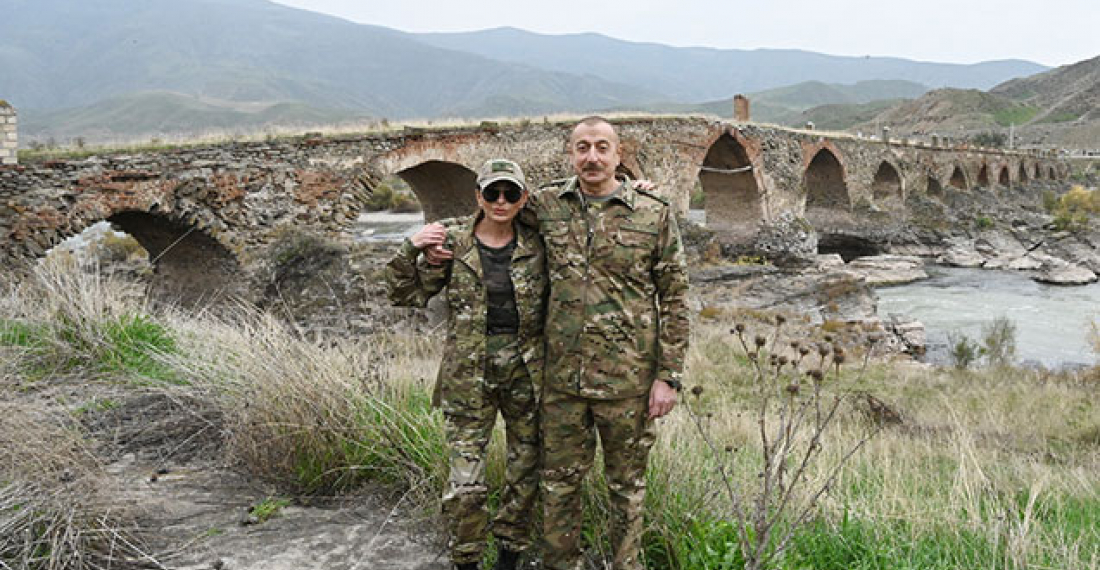Azerbaijani President Ilham Aliyev has dismissed the idea of "status" for Nagorno-Karabakh. Speaking whilst visiting territories that have recently been retaken by Azerbaijan during its recent war with Armenia, Aliyev said that Azerbaijan had restored its territorial integrity.
"I have repeatedly spoken about the Armenian-Azerbaijani Nagorno-Karabakh conflict. I said that we would never allow for the establishment of a second Armenian state on historical land of Azerbaijan. I said that the territorial integrity of Azerbaijan had never been and never would be negotiable. I said that Azerbaijan would restore its territorial integrity. I said that if it was not possible to do that peacefully, we would restore it by military means. My speeches are everywhere. They have been published. I said these words and I did what I said," he said.
Azerbaijan has restored its territorial integrity, President Aliyev stressed.
"We have restored our territorial integrity, expelled the occupiers from the occupied territories, prevented the establishment of a second Armenian state, and there can be no talk of any status," he added.
Aliyev said all citizens of Azerbaijan, representatives of all peoples and religions live normally, in peace and harmony here.
"The Armenian people will live like this too. We have nothing against the Armenian people. I have said in numerous interviews over the past 44 days that they are our citizens and they will see that they will live well under the leadership of Azerbaijan, that they must get rid of the criminal and cowardly junta."







